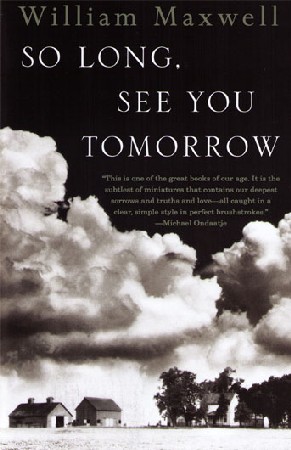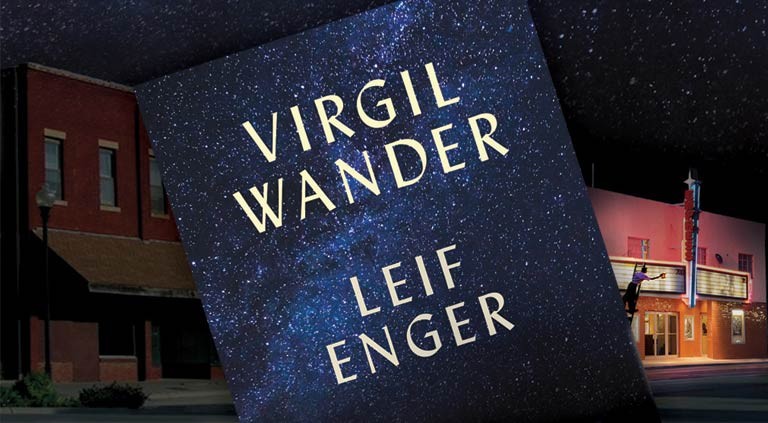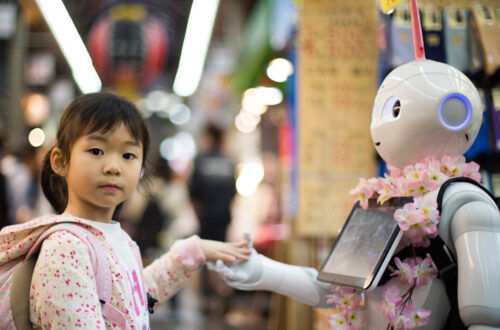Never Let Me Go
 I’m a big fan of Kazuo Ishiguro’s The Remains of the Day. I saw the movie first, then read the book. When I found Never Let Me Go on the library shelf, I decided to try another book by this masterful author.
I’m a big fan of Kazuo Ishiguro’s The Remains of the Day. I saw the movie first, then read the book. When I found Never Let Me Go on the library shelf, I decided to try another book by this masterful author.
I’ll give a brief overview that sidesteps spoilers. But then, since part of my purpose in blogging is to remember and come to terms with what I read, I’ll write a bit more specifically about my thoughts and reactions. If you think it’s a book you might want to read, skip that part, read the book — then come back to finish the post and share your thoughts!
What’s it about? The children of Hailsham, a secluded school in Edenic rural England. They’re told repeatedly that they’re “special.” They’re encouraged to be creative and artistic, and above all physically healthy. But there are no parents mentioned, only “guardians.” It’s a somewhat nurturing environment, but curiously impersonal. There’s no sense of purpose, no sense of the future, no transcendent awareness of any kind — only painstaking accounts of the minutia of life: conversations, cliques, social pressures. As the story unfolds, we learn the reasons for the school’s peculiar character.
******
As in The Remains of the Day, Ishiguro places us inside an airtight, strictly limited narrative consciousness. 31-year-old Kathy is a product of Hailsham trying to reconcile her experiences in hindsight, and we’re confined to her point of view. There’s no omniscient voice pulling us aside and explaining to us what’s happening; we have to find our own footing in Kathy’s imperfect perspective. Not far into the novel, we learn that Hailsham is a community of clones who have been created to donate their organs. The story raised questions for me regarding:
- Science. This novel has been classed as science fiction, though it doesn’t have some of the trappings I associate with the genre. In some ways it’s a more modern version of Frankenstein, or one of Hawthorne’s stories. But it’s told differently. It’s not a rant or a sermon, but a thoughtful imaginative attempt to get inside the propositions of biological engineering and see what it does to humanness — for the clones, and for those who care for them.
- Incrementalism. I was struck as I read by how the utter objectification of these people was simply an extension of some ways of seeing already in place. We already have many ways of referring to people as a class or type — ethnic labels, gender labels, religious labels, income brackets, medical statistics. We already have ways of blurring our humanity with clinical language. We already have pornography. We already have the reduction of sexuality to “having sex.” It didn’t stretch me too much to imagine the world of this novel, which simply extends these phenomena over the existing lines – rather than inventing new phenomena.
- Nature vs. nurture. As others have pointed out, the clones don’t protest their fate. Kathy speculates that part of this may be because they were told their purpose early on, when they were developmentally ready to accept it before understanding it. They all grow into adulthood, and not a single one rebels. How am I similarly conditioned? How much have I accepted in the strangely surreal way these clones have accepted their fate? How many things am I passing on to my children, consciously or unconsciously, that they are accepting uncritically? One of the main thrusts of the story is that the clones are fully human, and I think their willingness to be conditioned is one of the more disturbing aspects of humanness.
There are more questions, more ponderings, more responses than I have the wherewithal to write here. But when it comes down to evaluating the novel, I don’t reject its high quality as art, but I don’t think I would recommend it, either. It’s wrenching, but not terribly convincing as a fictional world. Much of it has a contrived feel. It raises worthy questions, but nothing much happens; it moves at a sleepy pace. The author describes the response he hopes for in this interview:
This is a very sad novel, but there was also something quite affirming in it because the characters are so decent. That response is probably closest to what I was trying to get at. The fact is, yes, we will all fade away and die. But people can find the energy to create little pockets of happiness and decency while we’re here.
That’s a modest aim, and I’d say that’s an accurate description of my response to the story. But in the end, I read in search of something more than that. My worldview dares to hope for something more than that — even though history keeps us honest about our track record as fallen human beings, and even though our present world gives us lots of reasons for anxiety.


